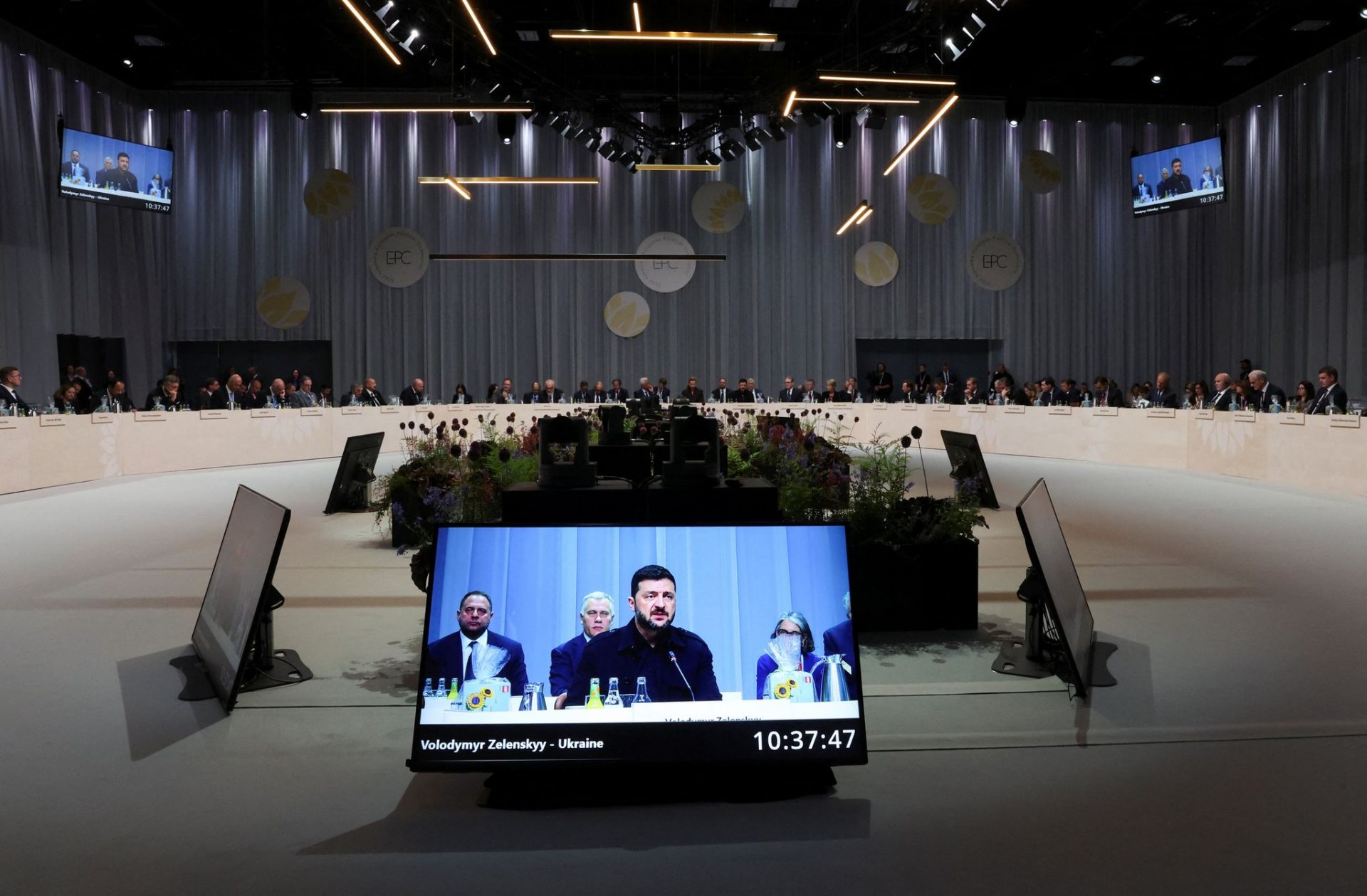 Have the article read by OpenAI (Beta). Please note that AI translations may take some time to process.
Have the article read by OpenAI (Beta). Please note that AI translations may take some time to process.Copenhagen (dpa) – European leaders are seeking to tap into Ukraine’s experience and expertise in dealing with drone incursions at a summit of the European Political Community (EPC) in Copenhagen.
“The only expert right now in the world when it comes to anti-drone capacities is, unfortunately, Ukraine, because they are fighting the Russian drones almost every day,” said Danish Prime Minister Mette Frederiksen, the meeting’s host.
“We need to take all the experiences, all the new technology, all the innovation from Ukraine, and to put it in our own rearming,” she said.
Following recent drone sightings in Denmark, several European countries including the German Armed Forces are participating in the security of the summit.
Ukrainian President Volodymyr Zelensky said that he is ready to offer advice, especially to Denmark, as he arrived at the EPC gathering which brings together almost 50 European leaders for discussions focused on strengthening Ukraine, the security situation in Europe and how to make the continent more secure.
His country might have the biggest and most relevant experience in dealing with drone interferences worldwide, Zelensky said, echoing Frederiksen’s remarks. “Of course we will not stay aside,” he said.
NATO Secretary General Mark Rutte said, “Ukraine is a powerhouse when it comes to innovation, insights, for example, when it comes to anti-drone technology, anti-cyber threats, etc.”
“The fact that Ukraine is now helping in Denmark, in Poland, NATO overall, to basically share its insights gained over more than three years, three and a half years, of this terrible full Russian onslaught, unprovoked, is very important,” Rutte said.
Leaders warn of wrong expectations of ‘drone wall’
The EPC summit follows a meeting of the European Union‘s 27 leaders on Wednesday also in Copenhagen where better protection of European airspace was discussed, including the idea to build a so-called “drone wall.”
While many leaders voiced support for the initiative, some warned of too high expectations.
Lithuanian President Gitanas Nausėda, whose country borders Russia-ally Belarus, warned of the high costs of a “system which could protect every inch” and advocated for a more targeted approach.
Donald Tusk, the prime minister of Poland, also a neighbouring country of Belarus, said he can understand concerns about the effectiveness of such a wall.
Tusk added that he wished that the discussions about improving drone defence capacities in Europe would already be more advanced and decisions on financing already taken.
Frederiksen already said on Wednesday that complete protection from interferences is unrealistic.
“I don’t think we will ever reach a conclusion where no drones are flying into Europe or no sabotage will be seen.”
The EPC was pushed by French President Emmanuel Macron in the wake of Russia’s full-scale invasion of Ukraine in 2022 to foster dialogue and cooperation between European countries beyond the borders of the EU and without the pomp of state visits.
The discussions on European security are also expected to touch upon economic security, drug trafficking and migration.
The 47 invited guests include all EU heads of state or government as well as the leaders of countries outside the bloc like the United Kingdom, Moldova, Ukraine, Switzerland and Georgia. Russia and Belarus are not invited to the gatherings.
EPC leaders first met in October 2022 in Prague, and last gathered in Tirana in May 2025. (2 October)
The editorial responsibility for the publication lies with dpa.
